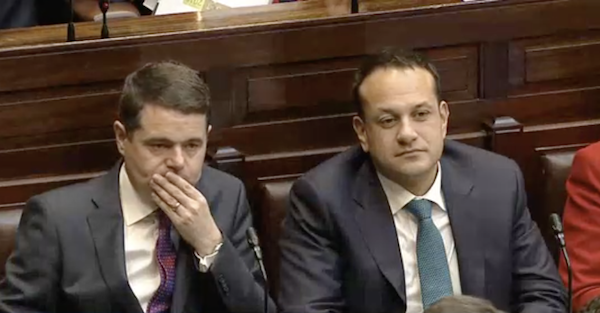Yesterday’s Budget was a low-key affair all round. Outside the lobby of Buswells there was the usual hustle and bustle, but across the country, there was little of the usual frenzied anticipation. Taoiseach Leo Varadkar and Minister for Public Expenditure and Reform, Paschal Donohoe, themselves were playing down expectations – this was a “balance-the-books” budget, not a glamorous giveaway.
It’s perhaps appropriate then, that the funding boost to higher education was greeted with neither a whimper or a murmur, but with a resigned shrug. In a sector that might often, over the last few months, have felt it has more enemies than allies, it was a sign of encouragement, but little else.
No one expected a decision on a new funding model to be announced, despite the promises of Minister of Education, Richard Bruton. Neither the Union of Students in Ireland (USI) or the Irish Federation of University Teachers (IFUT) even bothered to question it, so resigned were they to more months of lobbying and waiting for a final decision on the issue.
“We are disappointed at the absence of any specific direct funding initiatives to support third-level education”
Budget 2018 provided an additional €310 million over the next three years, until 2021, to update and improve infrastructure within the sector. The breakdown of how much will be available each year, and what exactly they will spend it on, remains to be seen. Echoing that long post-budget sound bite from opposition politicians: “Where will this money be spent?”
Disappointment might be too strong, but there was little enthusiasm. In a statement today, Chief Executive of the Higher Education Authority (HEA), Dr Graham Love, said that it was a “small but significant step in the right direction”, but that “we must yet grasp the nettle posed by the Cassells Report to make our Higher Education system sustainable in the face of rising demographics”.
“I look forward to further increases in funding for our Universities and Institutes of Technology. We will use it wisely — for students, for taxpayers, for Ireland”, Love concluded.
Michael Kerrigan, President of USI, told The University Times that he was “very disappointed”, and that “it hasn’t been a budget for students”, while in their statement, IFUT said that they were disappointed “at the absence of any specific direct funding initiatives to support third-level education”, with Joan Donegan, General Secretary of IFUT, saying that “it is especially disappointing that, despite Minister Donohoe’s Budget statement that ‘education at all levels is the bedrock of our society’, there was no announcement of specific funds to tackle the serious deterioration in staffing levels”.
It has been 15 months since the publication of the Cassels report, which outlined very clearly the three best options available
If employers have been getting off scot-free in making their contribution to higher education felt – as university heads and students have constantly argued – then it remains to be seen what impact this marginal levy increase will have. Ibec have expressed their scepticism for the levy, but you get the sense it’s a small price to pay for a guiding hand in how students are taught.
It might be noted, however, that Germany, the UK, Austria and Switzerland all have a similar levy on employers, without the very obvious courting and handholding currently being shown by the Department of Education.
It has been 15 months since the publication of the Cassels report, which outlined very clearly the three best options available to government for the funding model of the higher education sector.
However, it also said that the government needs to provide €600 million by 2021, just three years away, in core funding, in order to reverse and prevent more damage. By 2030 the report says that this core funding figure must be €1 billion. This does not included the €5.5 billion suggested capital investment the report calls for over the next 15 years to address the growing number of students in third-level education. So, the government’s delay in choosing a model offers little hope that we’ll meet these crucial deadlines.
After yesterday, the good news is that the sector is no longer being ignored. The bad news? One wonders how long the government’s attention span will last. Students and staff can only keep applauding breadcrumbs for so long.







